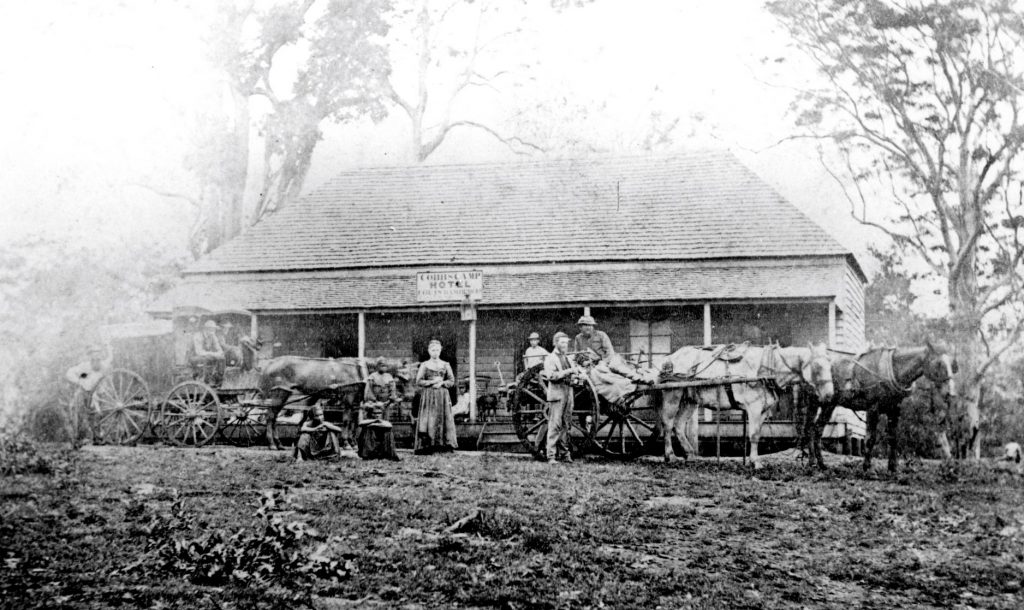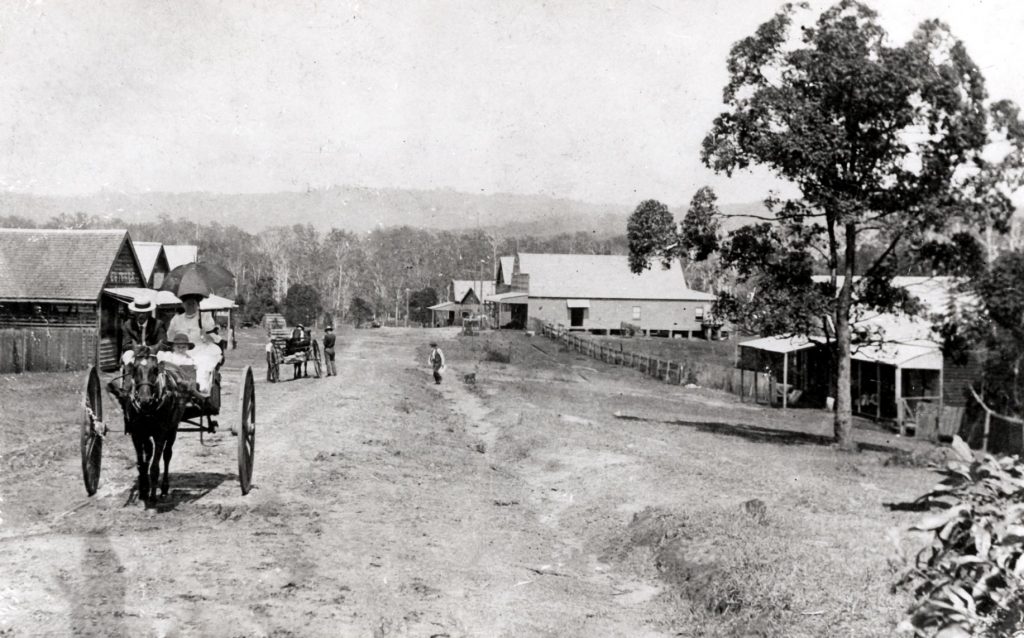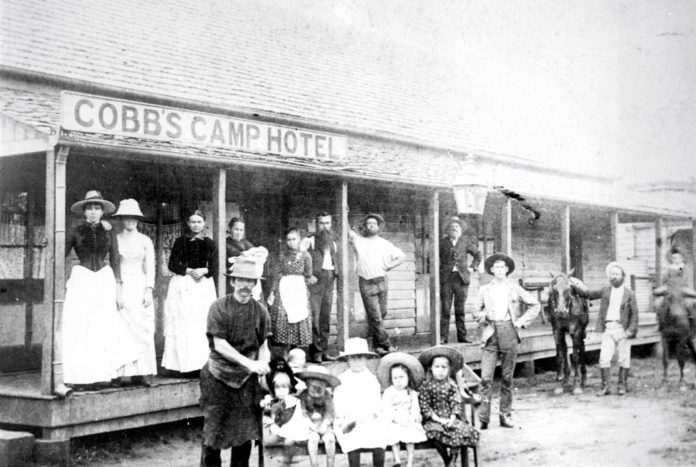The Gympie gold rush not only saved the Queensland treasury in 1867, it also led to a new town springing up halfway between the goldfields and Brisbane.
Things were dire in the colony of Queensland after it separated from New South Wales in 1859. The Bank of Queensland had closed and the government was broke, but then James Nash discovered gold in Gympie and the rush was on.
It not only saved the Queensland Treasury but also provided a lucrative business opportunity for Cobb and Co, transferring the valuable cargo and miners seeking their fortune.
Manager James Rutherford was ready to run a regular coach service as soon as a road could be built, which was in double quick time to answer the call of Gympie gold.
By October 1868, coaches were transferring people, goods, mail and gold along the Gympie Road.
There were 10 staging depots for weary horses and travellers to rest, and the halfway point was the hill south of Paynter’s Creek which, somewhat obviously, was called Middle Camp.

Cobb and Co chose this midway point to build the only overnight accommodation for passengers making the arduous journey between city and gold, and the first guests stayed on November 12, 1868.
The innkeeper, James Costa, was granted a liquor licence in 1870 and it wasn’t long before the Middle Camp Inn and its associated horse stables and yards was renamed Cobb’s Camp Hotel.
Settlers began moving into the district and houses of bark or slab or pitsawn timber, cropped up. Among them was Karl Stumpf who built his family a home at Cobb’s Camp. He took over the Cobb’s Camp Hotel liquor licence in 1877.
But the business was heading into tough times. In February 1880, a correspondent advised that it had been raining without interruption for the past eight days at Cobb’s Camp, and Gympie Road, was exceedingly heavy and almost impassable for wheeled traffic.
Help keep Sunshine Coast memories coming by subscribing to our free daily news feed. All it requires is your name and email. See SUBSCRIBE at the top of this article
This, with the gold losing its shine, led Cobb and Co to withdraw its services.
But although the gold and the coaches had gone, Cobb’s Camp still had plenty to offer its residents.
Frederick Schubert took over the hotel in about 1881, and also bought 64ha of land with all the Cobb and Co buildings, including the site where he would build his own hotel, the Criterion, in 1900. He also built a store and a butchery.

A new town was surveyed, much of it on the land Schubert had acquired from Cobb and Co. and in 1889, it was time for the name to change.
There were Cobb’s Camps in so many parts of Australia, the government decided this settlement north of Brisbane would be called Woombye.
It came from the Aboriginal word Wombai or Weembai, the name of the local black myrtle tree, a type of lilypilly whose timber was perfect for making axe handles.
The actual date of this change was given by The Chronicle of July, 1948, when it reported: “Another incident recalled is that Monday, 19th July, was the 59th anniversary of the changing of the name to Woombye from Cobb’s Camp. This had been discovered from a family Bible in which the date had been inserted.”
By the turn of the century, the little coach stop had a school, stores, churches, school of arts, railway station and a sawmill in addition to its hotel and a new form of gold – Woombye had become one of the country’s most important pineapple growing areas.
This flashback is brought to you by veteran Sunshine Coast journalist and history writer Dot Whittington, also the editor of Your Time Magazine.





